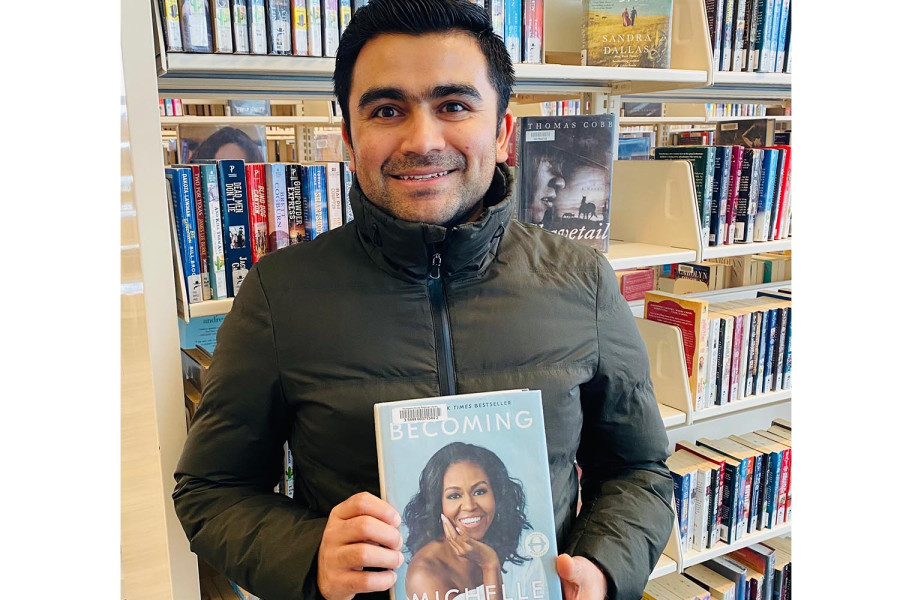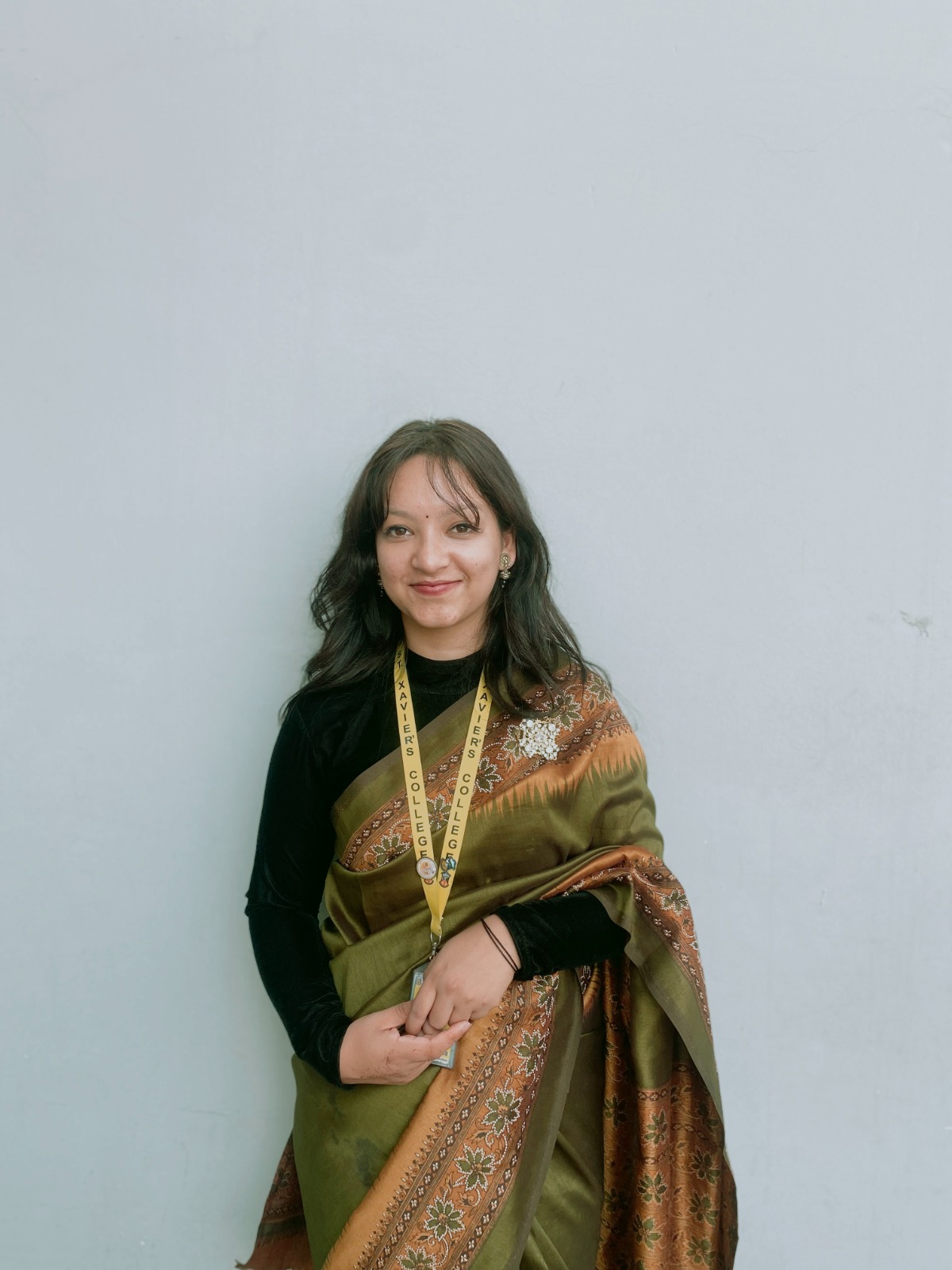Books
Empowering communities through education
Prakash Koirala, founder of FINLIT Nepal and a ‘Forbes 30 Under 30’ honoree, shares his journey of promoting financial education.
Aarya Chand
Prakash Koirala, founder of FINLIT Nepal, advocates for financial literacy in Nepal and has been recognised in the Forbes 30 Under 30 list for his contributions to financial education.
Koirala has worked as a resource analyst for the City of Vancouver Mayor’s Budget Task Force, aiming to identify inefficiencies in the city’s budget and explore potential revenue sources to reduce the financial pressure on taxpayers. He also authored a comic book, ‘FinLiCo’ (Financial Literacy Comics).
In this chat with the Post’s Aarya Chand, Koirala discusses his grandfather’s teachings and organising financial literacy initiatives in remote communities of Nepal and abroad.
What led you to advocate for financial literacy?
Growing up, my grandfather played a crucial role in teaching us the importance of planning and managing finances within our family. He ensured everything was organised and timely, even down to how the property would be distributed. When I moved from Dolakha to Kathmandu for my studies, I realised that poor financial management was often the root cause of many struggles. While working with schoolchildren in Bajang during my undergraduate years, I noticed that most parents didn’t discuss money with their children as they didn’t want to burden them. Additionally, children rarely showed interest in financial matters.
The lack of financial awareness impacted me, and I became determined to help individuals become financially independent, even enabling them to buy homes in Nepal. From 2012 to 2015, I organised financial literacy workshops with Rotaract and other organisations to reach as many people as possible. In 2015, I was honoured with an award by Valerie Howarth, Baroness Howarth of Breckland, at the House of Lords, British Parliament, which became a turning point in my life. It inspired me to continue pursuing this mission.
Did receiving the Global Award and National Youth Talent Award help you create an impact?
Receiving awards like the Global Award from the British Parliament and the National Youth Talent Award 2016 by the Nepal Government has helped me build a strong network, and I’ve learned that the people you surround yourself with shape your future. I didn’t pursue these projects for financial gain; I knew I was working on a passion-driven project, so these awards have reinforced my commitment. The recognition and comments on my work helped me see that even in dark moments, there is hope.
Today, I often see people competing for titles and positions without creating any impact. For me, the real value lies in your impact, which should be the driving force for awards and recognition—not the other way around. After hearing about my work, The Ministry of Youth and Sports contacted me and encouraged me to apply. This experience reinforced my belief that making an impact is far more valuable than participating in a race for recognition.
Can you share a story of an individual or community that benefited from your initiatives?
Bajhang, Baitadi, and Darchula are places I’m familiar with through my work. I’ve noticed that many male family members migrate to India for employment, but the money they send back is often mismanaged.
When they return, they find little to show for their efforts. Also, women taking loans through cooperatives or microfinance face hefty interest rates without adequate awareness of the terms.
To address this, I worked with 49 individuals in Bajang to create budget diaries, helping them track weekly expenses, evaluate their financial status, and learn how to recover from losses or invest profits. Over three months, participants realised that saving money doesn’t require wealth. This initiative also fostered family discussions about budgets and goals involving children. Parents and children bonded over shared financial goals, becoming more mindful of their demands and curious about banking procedures like KYC forms after completing their +2 education.
This experience highlighted the importance of financial literacy as a tool to build sustainable family dynamics. I believe every family should discuss finances openly.
What insights and approaches have you found most effective in promoting financial literacy in remote communities of Canada and Nepal?
In my work in Cambodia, Canada, and Nepal, I’ve observed that people in rural communities often possess a scarcity mindset where even small opportunities are viewed as chances to create something bigger. This contrasts with urban areas, which often focus on larger opportunities, overlooking smaller and meaningful ones.
Rural communities can thrive if given the same opportunities as urban populations. My strategy has been to ignite their vision and hope, creating a ripple effect of empowerment. Building genuine connections by staying grounded and approaching with humility has been the most effective way to foster trust and encourage learning. This personal approach has helped me connect with these communities and drive meaningful change.
Could you share key contributions you made as part of the City of Vancouver Mayor’s Budget Task Force that you believe will have a lasting impact?
In Canada, city budgets are developed with public input, targeting specific community needs. During Vancouver’s 2050 vision planning, I noticed a gap between citizens and the government. I adopted an outreach approach to address this, engaging with people directly at train and bus stations, which was well-received.
As a resource analyst, I contributed by identifying projects that could generate additional revenue for the city. For example, implementing a small access fee for public parks could benefit citizens and the city financially. I also emphasised valuing the homeless population and providing opportunities for immigrants to thrive. Additionally, I advocated for collaborative intercity projects, drawing parallels to how cooperation between cities like Lalitpur and Kathmandu can yield mutual benefits. These contributions laid the foundation for Vancouver’s 2020 budget planning.
How has your experience at the World Bank Youth Summit inspired your approach to networking, personal growth, and advocacy efforts, and how do you plan to implement these ideas?
My main reason for participating in the World Bank Youth Summit 2024, held in Washington DC, organised by the World Bank Group, was to build networks and discuss digital financial literacy. I understand I can't connect with everyone, but even forming lasting relationships with a handful of people makes a big difference. Attending the summit after the pandemic made me realise I had been under-utilizing my time compared to others. It motivated me to think outside the box every day.
In terms of advocacy, it broadened my perspective to focus on global issues, particularly the financial literacy of migrants in places like South Africa and North America. Many immigrants don’t understand the financial dynamics of their host countries, and this realisation inspired me to create visual books on financial literacy. The main motive is to encourage them to take risks without fear of negative consequences and to focus on achievable goals. This initiative stemmed directly from my experience at the summit.
Prakash Koirala’s book recommendations
Becoming
Author: Michelle Obama
Publisher: Crown Publishing Group
Year: 2018
This book stands out to me for its exploration of relationships, and characters navigating family struggles.
Poor Economics
Author: Abhijit V Banerjee and Esther Duflo
Publisher: PublicAffairs
Year: 2011
This is a must-read for those pursuing a career in economics, as it simplifies complex economic concepts.
The Notebook
Author: Nicholas Sparks
Publisher: Warner Books
Year: 1996
Sparks’ debut novel is inspired by the love story of his grandparents. As a fan, I admire every book he has written.
An Intimate Note to the Sincere Seeker
Author: Sri Sri Ravi Shankar
Publisher: Aslan Business Solutions
Year: 1998
This book is known for its focus on spiritual growth. It features 100 thought-provoking questions and answers on life.
Palpasa Cafe
Author: Narayan Wagle
Publisher: Penguin Books India
Year: 2005
Narayan Wagle masterfully weaves together themes of love, art, and the profound impact of Nepal’s Civil War.




 9.7°C Kathmandu
9.7°C Kathmandu










